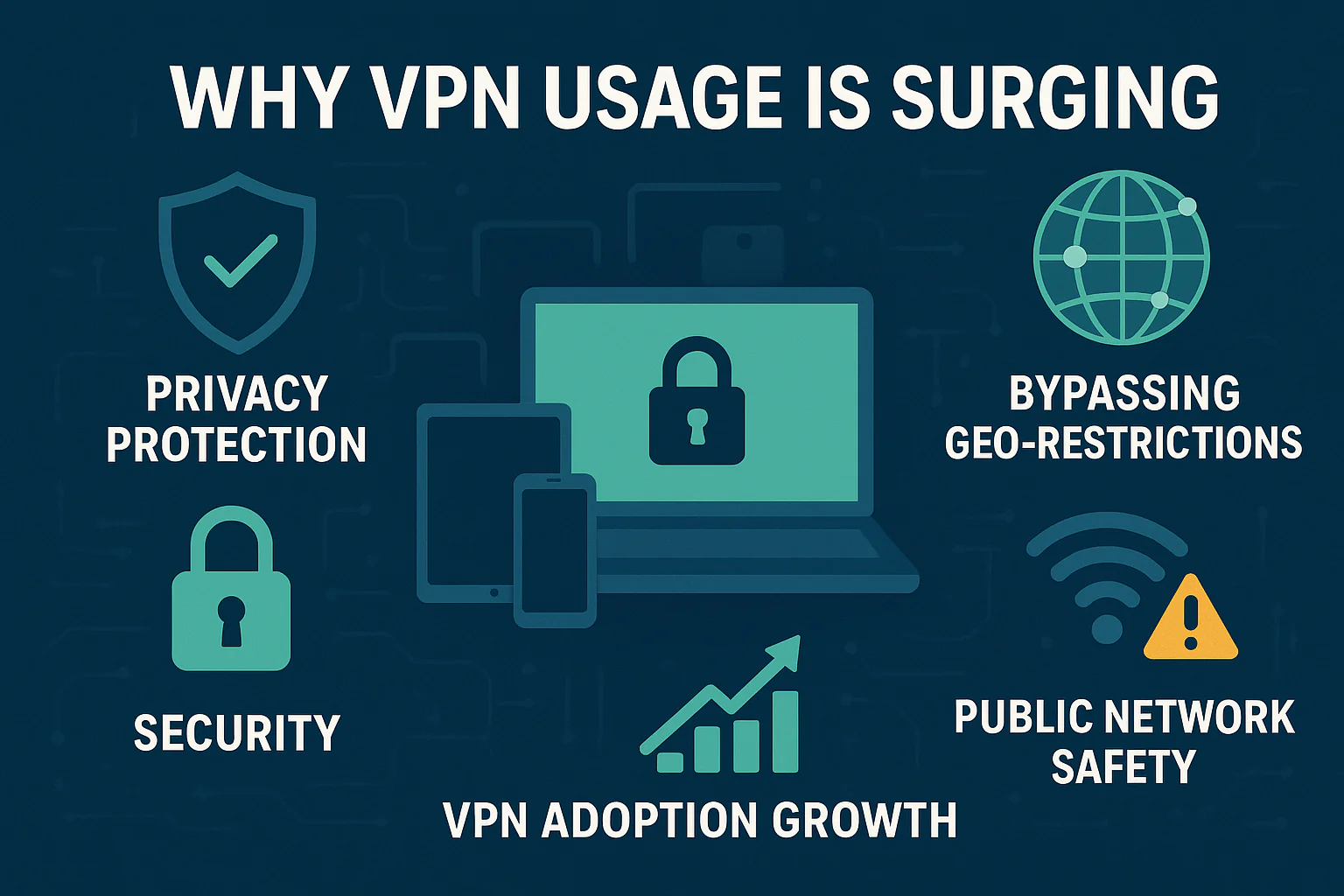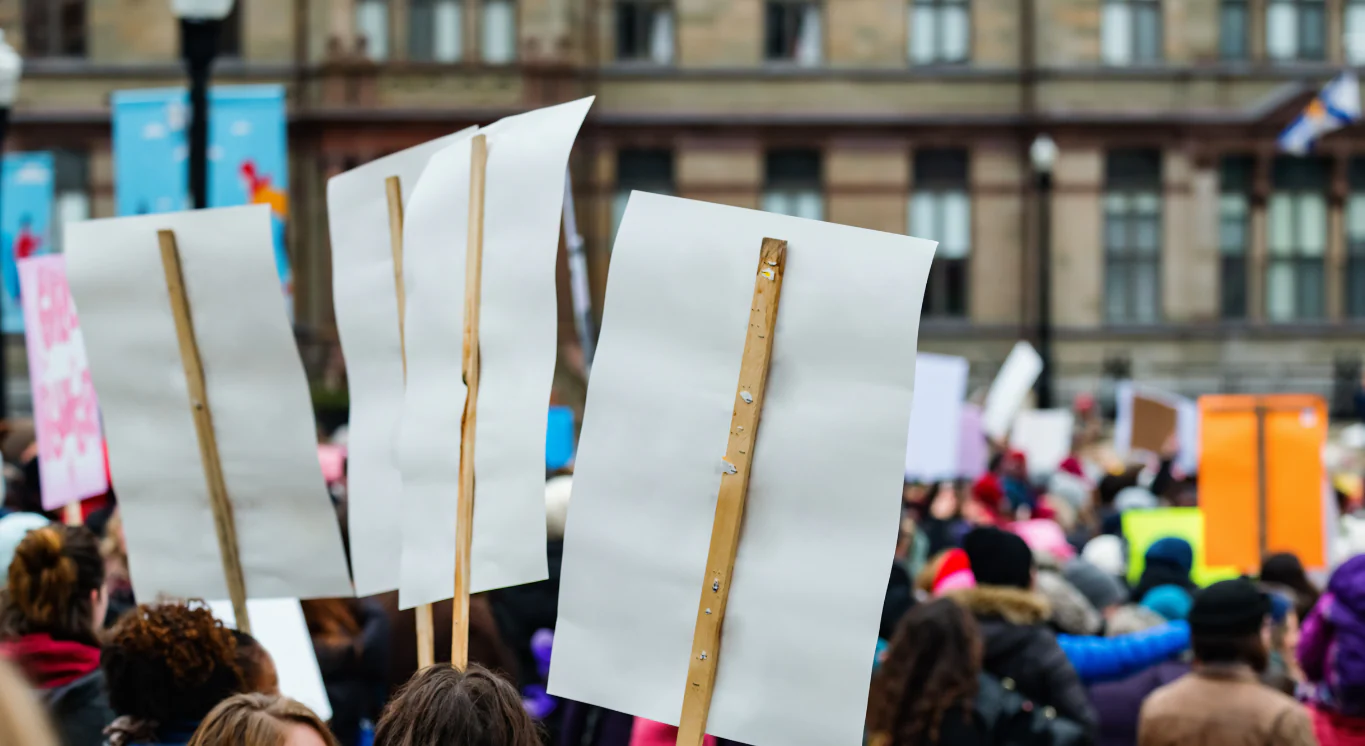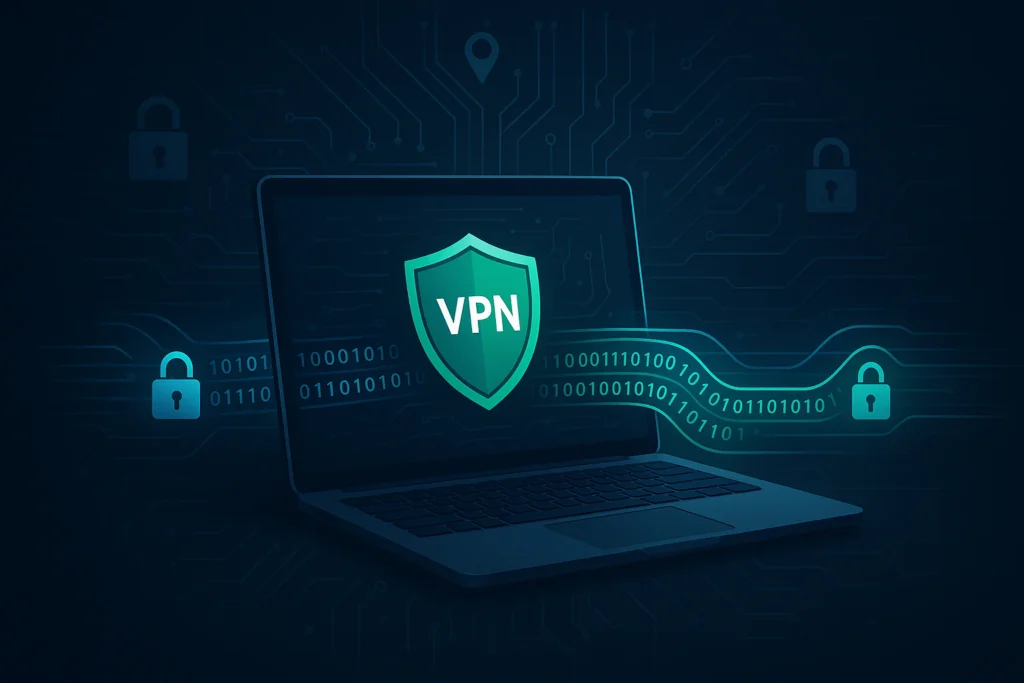VPNs have quickly become the latest flashpoint in the fight over online privacy and government control. Across the UK, millions are turning to VPNs as a lifeline for privacy and free expression. When the Online Safety Act forced people to upload government IDs just to browse certain parts of the internet, VPN adoption skyrocketed.
But instead of addressing the deeper flaws in these new policies, some politicians are doubling down, floating the idea of banning VPNs outright. Advocacy groups, digital rights defenders, and everyday citizens are preparing to push back. The upcoming “VPN battle” is more than a tech story; it’s a human story about privacy, freedom, and the future of the open internet.
Why VPN Usage is Surging

The new law requires users to prove they are over 18 before accessing certain online content, typically by scanning a credit card, passport, or another form of government ID. For many, this raised immediate concerns over data security and the potential misuse of personal information.
In response, VPN adoption skyrocketed. Proton VPN became the most-downloaded free app on Apple’s App Store, recording a 1,800% surge in downloads over a single weekend. Rival provider NordVPN also reported a 1,000% increase in UK subscriptions. At one point, half of the top ten free apps in the UK App Store were VPNs, underscoring just how quickly people have turned to these tools.
This surge reflects a growing desire to maintain online privacy and circumvent restrictions. By rerouting traffic through servers outside the UK, VPNs allow users to bypass the age-verification requirements imposed by the Online Safety Act. For many, it’s not just about convenience, it’s about finding a workaround to avoid handing over sensitive ID information to access everyday parts of the internet.
Political Pushback Against VPNs
While VPN adoption is accelerating, political leaders in the UK have begun signaling resistance. Labour supported limiting or banning VPNs even before the Online Safety Act came into effect. The argument centers on enforcement: VPNs allow users to bypass age-verification systems, making it difficult for Ofcom to uphold the law.
Rotherham MP Sarah Champion was among the first to raise the issue during the bill’s passage. She introduced a clause requiring the Secretary of State to publish a report on VPN usage within six months of the legislation taking effect, warning that if VPNs caused “significant issues,” the government would need to respond with solutions rather than ignoring the problem (UK Parliament, 2023).
Beyond the UK, governments from Russia to U.S. states like Mississippi have floated or enacted VPN restrictions, underscoring the global scope of the issue. Policymakers argue these measures are necessary to enforce safety standards, but critics see them as an alarming extension of online censorship and surveillance.
The Day of Action: September 25, 2025
As governments move toward tighter restrictions, activists are preparing to fight back. On Thursday, September 25, 2025, digital rights nonprofit Fight for the Future will host a global “Defend VPNs Day of Action.” The campaign is mobilizing VPN providers, online influencers, and everyday users to push back against growing efforts to restrict or ban virtual private networks.
The group has released a public toolkit, launched an action website, and set a fundraising target of $10,000 to power petitions, calls to lawmakers, and widespread awareness campaigns in the days leading up to the event (Fight for the Future, 2025). According to campaign director Lia Holland, the action aims to remind lawmakers that VPNs are not fringe tools, they’re essential privacy safeguards used by millions of people worldwide.
Participation is expected to stretch beyond the UK. U.S. citizens will be encouraged to call their members of Congress, while global supporters will be able to sign an open letter demanding governments stop targeting VPNs in the name of “safety.” With VPN usage at record highs following the UK’s Online Safety Act, this coordinated action could mark a turning point in the escalating confrontation between policymakers and digital rights advocates.
Why VPNs Matter to Users
VPNs are no longer niche tools, they’re essential safeguards for privacy, safety, and free expression. By encrypting traffic and bypassing restrictions, they let people access knowledge, communities, and culture without handing over sensitive data. According to a WIRED report, VPN usage in the UK surged immediately after the Online Safety Act took effect, as people sought to avoid invasive age-verification rules.
Banning VPNs wouldn’t make the internet safer. It would only strip people of one of the few tools they have to defend their digital rights.
The Upcoming VPN Battle
The stage is set for a clash between policymakers pushing stricter controls and citizens determined to defend digital privacy. With VPN adoption soaring, governments like the UK are testing how far they can go in enforcing surveillance-heavy laws. At the same time, rights groups are mobilizing globally, framing VPNs as essential for free expression and online safety.
What happens in the coming months will shape not only the VPN market but the future of digital rights across democracies and authoritarian regimes alike.
What Can We Do About This

The VPN battle isn’t only playing out in parliaments and courts, it’s unfolding in public. Here’s how readers can take part:
-
Join the Day of Action (Sept 25, 2025): Add your voice alongside VPN providers and activists.
-
Sign the open letter: Tell governments that private internet access is a human right.
-
Contact representatives: In the U.S., call your members of Congress; in the UK, reach out to MPs.
-
Choose trusted VPNs: Use reputable providers recommended by groups like the Electronic Frontier Foundation (EFF).
-
Support nonprofits: Support nonprofits leading this fight, such as Fight for the Future.
Freedom Demands Unified Resistance
The surge in VPN use shows that people won’t quietly surrender their online freedoms. Efforts to ban or restrict these tools risk igniting a backlash, uniting millions who see VPNs not as luxuries but as vital protections.
The upcoming VPN battle is more than a fight over apps, it’s a fight over dignity, autonomy, and the right to access information without surveillance. The buzz governments hear on September 25 may be the last warning before citizens push back harder: leave VPNs alone.








